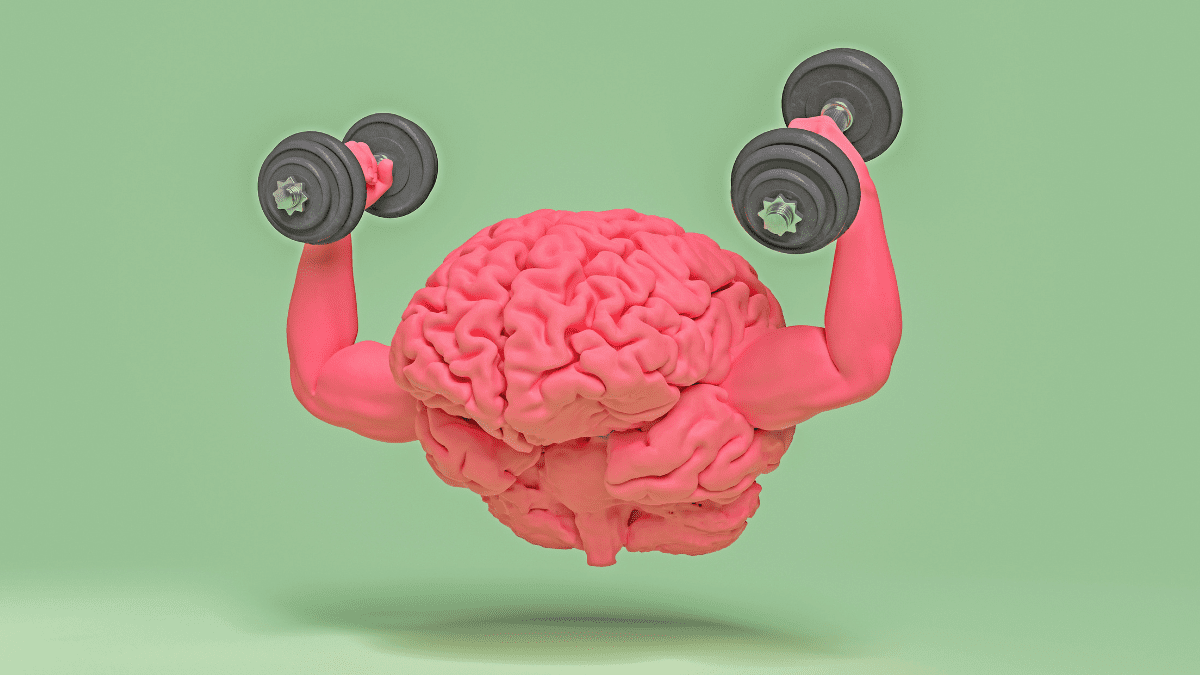Mindful Eating Benefits That Will Change Your Life
Explore mindful eating benefits that reconnect you to your body, reduce cravings, and turn every meal into a moment of peace, clarity, and soulful nourishment.

In This Article
- Introduction: Mindful Eating Benefits That Will Change Your Life
- The Science Behind Mindful Eating
- Why Mindful Eating Matters Today
- How Mindful Eating Benefits Your Physical Health
- Mindful Eating Benefits Digestion and Reduces Bloating
- A Simple Way to Manage Weight Without Dieting
- Balanced Blood Sugar for Lasting Energy
- A Healthier Gut for Better Well-Being
- The Surprising Mental and Emotional Benefits of Mindful Eating
- Mindful Eating Benefits Mental Clarity and Focus
- A Powerful Tool to Reduce Stress and Anxiety
- Stronger Emotional Connection with Food
- Simple Mindful Eating Ritual to Try Today
- Mindful Eating Benefits and Weight Loss: Does It Really Work?
- How Mindful Eating Benefits Natural Weight Control
- Breaking the Cycle of Emotional Eating
- Improving Digestion for Better Metabolism
- Sustainable Weight Loss Without Dieting
- How to Start Practicing Mindful Eating Benefits Today
- Create a Distraction-Free Eating Environment
- Mindful Eating Benefits Digestion and Satisfaction
- Listen to Your Body’s Hunger and Fullness Cues
- Engage Your Senses While Eating
- Conclusion: The Life-Changing Power of Mindful Eating Benefits
- Mindful Eating Benefits — FAQ
Introduction: Mindful Eating Benefits That Will Change Your Life
Do you find yourself eating on autopilot—rushing through meals, barely tasting a single bite? In today’s fast-paced world, it’s easy to overlook the sacred ritual of nourishing your body. But what if every meal could be a moment of presence, healing, and deep connection? That’s the transformative power of mindful eating benefits.
Mindful eating benefits reach far beyond what’s on your plate. When you slow down and truly engage with your food, you unlock better digestion, balanced energy, emotional clarity, and a renewed sense of self-respect. This isn’t about dieting or deprivation—it’s about awareness, intention, and gentle nourishment.
In this guide, you’ll discover how mindful eating can shift not only how you eat—but how you feel, how you heal, and how you live. Ready to reclaim your meals as moments of harmony and self-love? Let’s begin this journey back to yourself—one conscious bite at a time.
And if you’re feeling called to reset your gut and reignite your radiant energy, explore our companion guide on how to reclaim your energy, mood, and glow naturally.
What Is Mindful Eating and Why Does It Matter?
What if you could turn every meal into a sacred act of self-care? Mindful eating invites you to do just that—to pause, tune in, and fully experience the moment your nourishment meets your body.
At its heart, mindful eating is the practice of being fully present with your food. It’s about honoring each bite—its flavors, textures, and the subtle messages your body sends. Unlike dieting, which often roots itself in shame or restriction, mindful eating is a return to self-awareness. A return to trust.
Most of us have learned to eat while distracted—scrolling through phones, rushing through lunch, silencing emotions with snacks. But your body is always speaking to you. When you slow down and listen, you’ll begin to recognize the cues that say “I’m full” or “I need nourishment.” This gentle awareness shifts eating from a mindless habit into a mindful ritual of connection.
By embracing this practice, you’ll notice how food affects your energy, your digestion, even your mood. It’s no longer about rules—it’s about relationship. With practice, mindful eating becomes second nature. It invites balance, joy, and a deeper alignment with your body’s wisdom.
How Is Mindful Eating Different from Emotional Eating?
We’ve all been there—reaching for snacks not because we’re truly hungry, but because we’re stressed, bored, or seeking comfort. Emotional eating is a tender cry from within, often unnoticed beneath the surface of our day. But here’s the truth: your emotions deserve your attention, not suppression. And mindful eating gently guides you there.
While emotional eating is driven by feeling, mindful eating is rooted in awareness. It teaches you to pause and ask, What do I really need right now? Instead of reacting, you respond—with compassion. With choice.
When you eat mindfully, you learn to witness your cravings without judgment. You begin to understand the difference between physical hunger and emotional hunger. And in that space of clarity, you reclaim your power.
Rather than numbing with food, you start nourishing with intention. You notice how certain meals uplift your energy or how others leave you feeling drained. This simple shift allows you to make choices that support—not sabotage—your well-being.
Over time, the emotional grip on food loosens. You’re no longer eating to escape; you’re eating to connect. To heal. To come home to yourself.
The Science Behind Mindful Eating
Beneath the stillness of mindful eating lies a powerful truth: your body is wired to thrive when you slow down and pay attention. And modern science is finally catching up to what ancient wisdom has always known.
Research shows that practicing mindful eating enhances digestion, supports a healthy metabolism, and even rewires the brain’s relationship with food. When you eat slowly and with presence, your body has time to release satiety hormones—subtle chemical messengers that say, You’ve had enough. This natural process reduces overeating and restores balance to your body’s rhythms.
A study from Harvard Health explains how practicing mindful eating techniques can lead to long-term healthy habits. When you chew thoroughly and focus on your meal, your body absorbs more nutrients. The act of truly tasting your food activates parasympathetic nervous system responses—your body’s “rest and digest” mode—which enhances everything from gut health to immune function.
Mindful eating also has a profound impact on behavior. It reduces binge eating, emotional cravings, and erratic food choices. By slowing down, your body has time to send fullness signals. This prevents overeating and promotes balance. Simply by bringing awareness to your plate, you begin to nourish—not just your body—but your relationship with food, and with yourself.
Science reminds us that small, conscious actions create long-term change. So the next time you sit down to eat, remember: every mindful bite is a step toward healing.
Why Mindful Eating Matters Today
Modern life is fast-paced. People eat in a hurry, grab processed meals, and ignore hunger cues. This leads to digestive problems, weight struggles, and stress around food. But mindful eating offers a solution.
It helps you reconnect with your body. It turns meals into a calming ritual instead of a rushed task. With practice, mindful eating becomes a natural habit. It shifts focus from guilt to nourishment.
By paying attention, you can enjoy food more and feel satisfied with less. You gain control over eating habits without feeling restricted. This practice isn’t just about food—it’s about overall well-being.
How Mindful Eating Benefits Your Physical Health
How you eat matters just as much as what you eat. Mindful eating helps your body by improving digestion, balancing blood sugar, and supporting healthy weight.
Most people eat too fast. This rush puts stress on your digestive system and limits how well nutrients are absorbed. But when you eat slowly and with presence, your body responds with greater ease and balance.
Slowing down supports your natural fullness signals, helping you avoid overeating. Over time, mindful eating strengthens gut health, boosts energy, and promotes physical well-being—without dieting or deprivation.
Mindful Eating Benefits Digestion and Reduces Bloating
When you rush through meals, your body struggles to keep up. Large bites and poor chewing can cause bloating, gas, and discomfort. Your stomach ends up working harder than it needs to.
Mindful eating slows the process down. When you chew thoroughly, digestion begins more efficiently. This reduces pressure on your gut and helps prevent post-meal heaviness.
With time, mindful eating supports a healthier, more resilient digestive system—bringing ease and comfort back to every bite.
A Simple Way to Manage Weight Without Dieting
Strict diets often fail because they focus on control, not connection. Mindful eating offers another path—one rooted in balance and trust.
By tuning into hunger and fullness, you naturally eat less without feeling deprived. Studies show that slowing down helps you feel satisfied with smaller portions.
Instead of counting calories, you begin listening to your body. And in that space of awareness, weight management becomes gentle, sustainable, and stress-free.
Read more about how eating slowly and being mindful of portion sizes can improve your relationship with food: Mindful Eating Research.
Balanced Blood Sugar for Lasting Energy
Eating quickly and relying on processed foods can spike your blood sugar—followed by energy crashes and intense cravings.
Mindful eating helps prevent this cycle. By chewing slowly and eating at a steady pace, your body processes carbs more effectively, keeping glucose levels stable.
This balance supports steady energy, sharper focus, and fewer mood swings—so you can feel more grounded and vibrant throughout the day.
A Healthier Gut for Better Well-Being
Your gut does more than digest—it influences your mood, immunity, and energy. But rushed eating can strain digestion, causing inflammation and imbalance.
Mindful eating reduces that stress. When you chew well and eat calmly, your gut breaks down food more efficiently, supporting beneficial bacteria and nutrient absorption.
Over time, this strengthens your digestive health and fosters a deeper sense of overall well-being—from the inside out.

The Surprising Mental and Emotional Benefits of Mindful Eating
Mindful eating isn’t just about food—it’s about presence. When you slow down, you shift from autopilot to awareness, creating space for clarity and calm.
Eating with intention helps reduce stress, sharpen focus, and ease emotional triggers. You’re no longer just feeding your body—you’re caring for your mind and soul.
By staying present at mealtimes, you build a healthier relationship with food—and with yourself.
Mindful Eating Benefits Mental Clarity and Focus
Your brain and body are deeply connected. When you eat in a rush or under stress, it clouds your thinking and dulls your energy.
Mindful eating brings you back into alignment. Slowing down gives your brain time to register fullness and satisfaction, reducing cravings and mental fog.
This simple habit sharpens focus and helps you stay clear, centered, and energized throughout the day.
Read more about how paying attention to eating habits can improve mental clarity and reduce brain fog.
A Powerful Tool to Reduce Stress and Anxiety
Stress often shows up in our eating habits—mindless snacking, emotional cravings, or meals eaten in a rush.
Mindful eating helps break that cycle. By slowing down and breathing before meals, you activate the body’s relaxation response, easing tension and improving digestion.
Over time, this practice teaches you to respond to emotions with presence, not food—restoring peace and balance from within.
Stronger Emotional Connection with Food
Food is more than fuel—it’s memory, culture, and emotion. Mindful eating invites you to honor that connection.
By tuning into flavors, textures, and how food makes you feel, you begin to eat with gratitude instead of guilt. There’s no judgment—just awareness.
This shift deepens your relationship with food, turning meals into moments of joy, not stress.
Simple Mindful Eating Ritual to Try Today
Starting mindful eating doesn’t have to be overwhelming. Here’s a simple ritual to ground your next meal:
- Step 1: Pause before eating – Take 3 slow, deep breaths to center yourself.
- Step 2: Express silent gratitude – Reflect on where your food came from and its nourishment.
- Step 3: Eat without distraction – Put away screens and bring full attention to the flavors, textures, and aromas.
- Step 4: Chew slowly – Aim for at least 20 chews per bite to aid digestion.
Practicing these steps transforms meals into moments of healing—physically, emotionally, and spiritually.
Mindful Eating Benefits and Weight Loss: Does It Really Work?
Strict diets often lead to short-term results and long-term frustration. Mindful eating takes a different path—one rooted in awareness, not willpower. By slowing down and listening to your body, you reduce overeating and naturally manage weight. There’s no need to count or restrict.
This gentle approach helps you build habits that last—because they come from connection, not control.
How Mindful Eating Benefits Natural Weight Control
When you eat mindfully, you shift from external rules to internal wisdom. You begin to notice when you’re truly hungry—and when you’re not.
This awareness helps you stop eating out of habit or emotion. You feel satisfied with less, without feeling restricted. Over time, mindful eating supports natural, sustainable weight loss—grounded in self-trust, not self-denial.
Read more about how slowing down and savoring each bite can reduce overeating and support weight loss.
Breaking the Cycle of Emotional Eating
Emotional eating often masks deeper needs—stress, sadness, or the longing for comfort. Mindful eating helps you pause and check in. You begin to ask, Am I truly hungry, or am I seeking something else?
This simple practice builds emotional awareness and self-compassion—helping you choose nourishment, not numbness.
Improving Digestion for Better Metabolism
Fast eating burdens your digestive system and can slow metabolism over time.
Mindful eating gives your body the space to break down food properly. Chewing well and eating slowly supports nutrient absorption and gut function.
With consistent practice, your metabolism becomes more efficient—and your body more energized.
Sustainable Weight Loss Without Dieting
Strict diets often lead to weight regain. Many people lose weight quickly, only to gain it back later. This happens because diets do not change eating habits permanently.
Mindful eating offers a long-term solution. It teaches people how to enjoy food without guilt. By paying attention to hunger and fullness, weight loss becomes more natural. The focus shifts from temporary restriction to lifelong balance.

How to Start Practicing Mindful Eating Benefits Today
Mindful eating doesn’t require a big lifestyle change—just small, conscious steps.
Begin by slowing down. Sit without distractions, take a deep breath, and truly savor your food. Chew slowly, notice flavors, and check in with your body.
With each mindful meal, you deepen your connection to your body—and to the nourishment it deserves.
Create a Distraction-Free Eating Environment
Multitasking during meals disconnects you from your body’s cues.
Turn off screens, silence your phone, and make space for presence. A calm environment allows you to enjoy your food and notice when you’re full.
This simple shift can transform meals into moments of peace and awareness.
Mindful Eating Benefits Digestion and Satisfaction
Eating quickly can lead to bloating and missed fullness signals.
When you chew thoroughly and slow down, digestion improves and satisfaction increases. Your body absorbs more nutrients, and you naturally eat less. It’s a gentle way to feel better—without changing what’s on your plate.
Studies show that chewing food thoroughly enhances digestion and promotes better nutrient absorption. Taking smaller bites and chewing more times per mouthful can help you feel full with less food.
Listen to Your Body’s Hunger and Fullness Cues
Many of us eat out of habit—not true hunger. Before you eat, pause and ask: What does my body need right now? During meals, notice when you begin to feel full.
Honoring these cues builds trust with your body and helps prevent overeating naturally.
Engage Your Senses While Eating
Mindful eating is about more than just slowing down. It also involves engaging all your senses. Paying attention to colors, smells, and textures enhances your experience with food.
Taking time to enjoy the aroma and presentation of a meal can increase satisfaction. This approach helps you feel more content with smaller portions. Eating with awareness also encourages healthier food choices.
Conclusion: The Life-Changing Power of Mindful Eating Benefits
Mindful eating is more than just a habit—it’s a quiet revolution in how you care for yourself. Instead of focusing on rules or restrictions, you return to a natural rhythm of eating with awareness, presence, and joy. With each intentional bite, you begin to rebuild trust in your body and shift your relationship with food from stress to self-respect.
Simply slowing down can create powerful change. When you give yourself time to taste, chew, and notice, your body responds. Digestion improves, overeating lessens, and energy flows more consistently. Listening to hunger and fullness cues helps you eat what your body needs—no more, no less—without pressure or guilt.
Mindful eating also deepens your connection with food. It invites you to engage your senses fully, turning everyday meals into moments of gratitude. Flavors become richer, satisfaction rises, and you begin to feel full not just physically—but emotionally, too. Over time, emotional cravings lose their grip, replaced by a steadier inner balance.
The benefits extend far beyond the body. Mindful eating calms your nervous system, reduces anxiety, and creates mental space for clarity and calm. Without the constant distractions, meals become rituals of self-care, nurturing both body and spirit.
And the beauty is—it’s simple to begin. You don’t need rigid plans or complicated rules. Just slow down, notice, breathe. The more often you return to the present while eating, the more natural it becomes. Small, consistent changes create lasting transformation.
By embracing mindful eating, you reclaim your power. You nourish yourself with kindness and intention. And in doing so, food becomes not a source of stress—but a source of healing, pleasure, and peace.
For deeper guidance on aligning your body, mind, and spirit, explore our full guide on how to reset your life through holistic health and well-being.
Mindful Eating Benefits — FAQ
What is the difference between mindful eating and dieting?
Mindful eating focuses on awareness and connection, not restriction. While diets often rely on strict rules, mindful eating teaches you to listen to your body’s cues—like hunger, fullness, and satisfaction—so you eat in a way that feels balanced and nourishing.
Can mindful eating help with weight loss?
Yes, but not in the traditional sense. Mindful eating supports natural weight balance by helping you recognize when you’re truly hungry and when you’re full. Over time, this awareness reduces overeating and emotional eating, making weight management more sustainable.
How do I start practicing mindful eating?
Start small. Sit down without distractions, take a few deep breaths, and truly taste your food. Chew slowly, notice how it feels in your body, and pause between bites. The more present you are during meals, the more intuitive and joyful eating becomes.
Created by Lili Vu, holistic health & nutrition coach in training. Deeply passionate about mind-body healing, nourishment, and intentional living — practices I’ve lived, tested, and continue to grow through. Embracing my ADHD and supporting my partner through a brain stroke reshaped how I understand the nervous system, resilience, and healing. I explore holistic well-being practices including yoga, plant-based nutrition, gut and hormone health, trauma recovery, and mindful habit change — all rooted in my personal healing journey. 🌿







